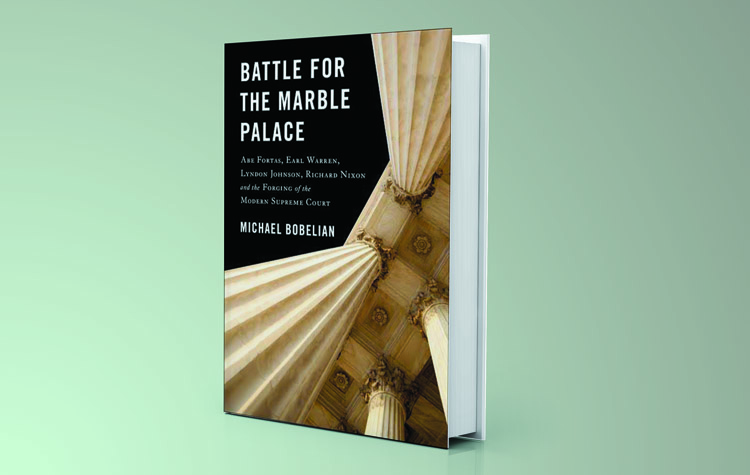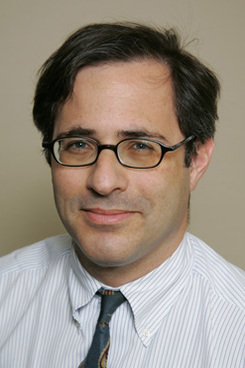Benjamin E Rosenberg

February 05, 2024 | New York Law Journal
Privatizing the Public SphereDespite the prevalence of private crime fighting outfits, they largely escape the scrutiny of academics and analysts who think about criminal justice. The organizations, disparate though they are, raise a host of overlapping questions, many of them involving the absence of protections for the accused.
By Benjamin E. Rosenberg
6 minute read

January 10, 2023 | New York Law Journal
Originalism Has Problems, But What Is the Alternative?Chemerinsky's book is a concise and accessible review of originalism and its faults.
By Benjamin E. Rosenberg
13 minute read

May 15, 2019 | New York Law Journal
Political Battles for an Apolitical BranchMichael Bobelian's Battle for the Marble Palace reminds us that the judicial appointment war did not begin with Bork but started at least 20 years earlier, with the appointment by President Lyndon Johnson of Associate Justice Abe Fortas to succeed Earl Warren as chief justice.
By Benjamin E. Rosenberg
10 minute read

December 26, 2014 | New York Law Journal
Actual Innocence: the Curious Case of 'People v. Hamilton'Benjamin E. Rosenberg, general counsel for the District Attorney of New York, discusses 'Hamilton', the first decision by a N.Y. appellate court to hold that a defendant might vacate his conviction if he could demonstrate that he was "actually innocent" of the crime of which he was convicted.
By Benjamin E. Rosenberg
14 minute read

August 23, 2012 | New York Law Journal
Pleading Crimes in IndictmentsBenjamin E. Rosenberg, a partner at Dechert, analyzes two recent cases that are potentially important for those considering challenges to indictments; they leave open an important issue regarding whether harmless error analysis applies when an indictment fails to set forth all of the elements of the crime alleged in the indictment.
By Benjamin E. Rosenberg
16 minute read

October 28, 2008 | Law.com
'Kozlowski': Using Internal Probes Against Employees?The corporate internal investigation is a boon for the government because it does the government's work for it: Not only is the wrongdoing stopped, but if the corporation provides the government with the results of its internal investigation, then the government has a road map for prosecution. Attorney Benjamin E. Rosenberg discusses three developments in recent months that may affect how corporate internal investigations are conducted and how their results might be used in criminal trials.
By Benjamin E. Rosenberg
12 minute read

October 26, 2010 | New York Law Journal
Evidentiary Certifications After 'Crawford v. Washington'Benjamin E. Rosenberg, a partner at Dechert, writes that by the clear terms of Crawford v. Washington, the use of certifications to introduce documents under the "business records" exception to the hearsay rule should no longer be permitted in criminal trials. Several decisions, however, have held that the certification procedure remains viable.
By Benjamin E. Rosenberg
10 minute read
June 10, 2005 | New York Law Journal
The Sound of Silence Post-Arrest and Pre-'Miranda'Benjamin E. Rosenberg, a partner at Dechert LLP, writes that every criminal defendant has the right to remain silent. This is axiomatic. Everyone who watches television � which is to say, everyone � knows it. Notwithstanding its iconic status, the right to remain silent has some murky boundaries.
By Benjamin E. Rosenberg
12 minute read

March 16, 2006 | New York Law Journal
Questions and HearsayBenjamin E. Rosenberg, a partner at Dechert LLP, argues that although several courts have held that declarations in the form of questions are not hearsay because they are, by definition, not assertions, the difference between questions and affirmative sentences should be irrelevant for purposes of hearsay analysis. A question should be analyzed as any other statement that contains implied assertions and dealt with accordingly.
By Benjamin E. Rosenberg
15 minute read

July 29, 2009 | New York Law Journal
Appellate Review of Structural Errors in Criminal TrialsBenjamin E. Rosenberg, a partner at Dechert, writes: The Supreme Court has stated that when structural errors occur, automatic reversal is required. Recent Second Circuit authority, however, has drawn a distinction between large and small structural errors. While there is force to the Second Circuit's reasoning - that errors that plainly do not affect the outcome of the case and plainly do not sacrifice the values that underlie the relevant constitutional provisions should not lead to reversal of a conviction - the Second Circuit's triviality analysis leads to at least four significant problems or questions.
By Benjamin E. Rosenberg
13 minute read
Trending Stories



